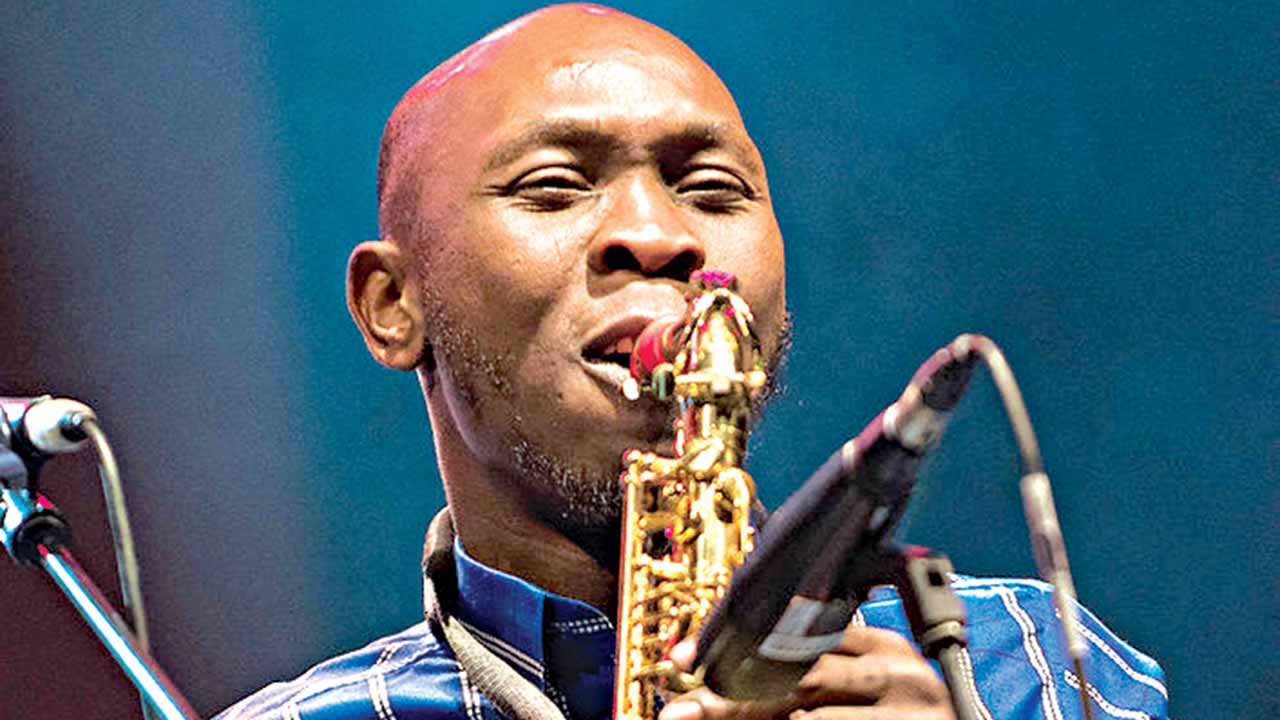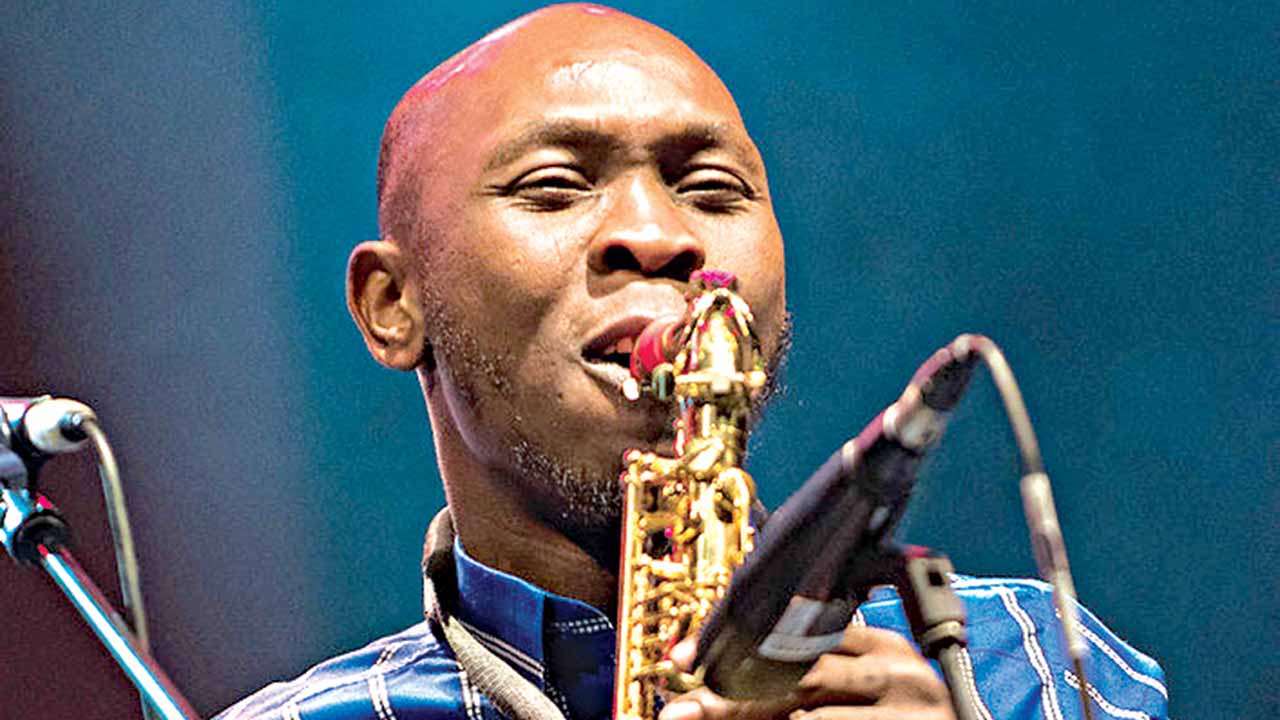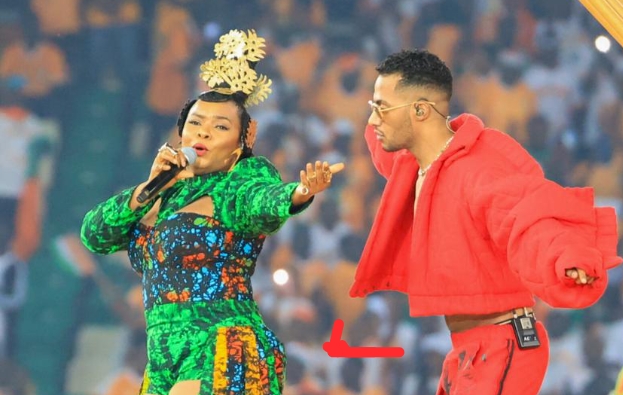Popular music manager, Rikki Stein bared it all in this anniversary interview with TheNewsGuru.com, TNG where he spoke extensively on the music industry in almost six decades, his experience while managing Afrobeats numeruno, Fela Anikulapo Kuti, impact of African music, landmarks of Nigeria, his inspiration behind the beautifully written new memoir ‘Moving Music’ and other developments, excerpts.
Hear him:
You toured the world with the most iconic musicians; what do you look for in an artist before moving to manage them?
It’s the music, always the music, followed fast by lyrical content. We’ve been inundated for a century or more with ‘leg over’ tales. ‘My baby left me’, ‘love to love you’, etc, etc. Enough already! When I come across people with something meaningful to say about the human condition I find this refreshing and inspirational.
What inspired you to write the memoir Moving Music, and why was 2024 chosen to be the year it was published?
Well, that’s what I’ve devoted my life to: moving music around the planet. Sometimes I might have up to 70 hardy souls on the road. And let me tell you, they could drive me nuts! Every imaginable drama, situation, and sometimes house-on-fire issue would need tobe exorcised, extinguished, defused and otherwise resolved. But then I’d finally get them up on stage, go to the mixing desk, and the show would begin. Once satisfied that the sound was correct, I’d move around the venue, feeling how what was coming off the stage was being received. I’d be looking for shining eyes, expressions of delight, bobbing heads, raised arms, and (where appropriate to the music) swivelling hips. When I find these in abundance all around me, I’d look up at the stage and forgive the motherfuckers for every last aggravation they’d caused during the day! I was, in other words, moved; a second reason for giving my memoirs the title Moving Music. This is the quality of music I’ve always been attracted to: life-enhancing, socially relevant, transcendental. The kind of stimulating music that gladdens the heart. It is a passion that has led me through a life full of challenging, uplifting adventures.
Over the past decade I’ve made various stabs at documenting my career, feeling that it was a story worth telling, but my work always got in the way. Writing, for me at least, requires dedication and time that simply wasn’t available. Then came COVID-19 andmy work, for the most part, ground to a halt. Always happiest when fully occupied with one thing or another, and now being locked down along with the rest of the populace, I immediately realized that this provided the perfect, uninterrupted opportunity to write the story of my life. My dear friend, Fela Kuti, often said, “Even bad can be good.” In light of the suffering caused by this pandemic across the globe, this is a perfect example of that adage.
What was it like working for Afrobeat star Fela Anikulapo Kuti?
A constant delight. I met Fela in the late seventies and became immediate friends. I had no thought of managing him, I just wanted to meet the man responsible for creating this extraordinary music. Anyway, he already had a manager, Francis Kertekian. For a manager, alarm bells ring when someone like me turns up. From his expression I saw ‘who is this guy and what does he want?’ running through Francis’ mind, particularly when he saw how well Fela and I were getting on. But as we spent time together, we, too began a friendship. It endured for 35 years until Francis passed in 2016.
In the early eighties, my friendship with them both had deepened and I was invited to join Francis as Fela’s co-manager. Our journeys and adventures together over the next fifteen years until Fela’s sad passing were probably made easier by us already being friends. You can say more or less anything to a friend. Well, more or less. Sometimes Fela’s decision to do or not do something would cause alarm amongst those affected, who would come to me for my view. I would merely shrug my shoulders. The reason for my apparent indifference was that I’d learned to understand what motivated Fela to arrive at certain conclusions. It was a concern for his core supporters. Each time Fela was working on a new song during afternoon rehearsals at the Shrine, there would be several hundred people sitting quietly and listening. They were the real Fela aficionados. I knew that before Fela made a decision, he would ask himself, “If I do this, what will they think?” If the answer came back, “They wouldn’t like it,” he simply wouldn’t do it. Even if the answer wasn’t entirely clear as to what they would think, he still wouldn’t do it. They were the bedrock upon which his entire motivation was based. Hence, my nonchalant shrug.
What is that one thing that fuels your role in preserving and revitalizing the works of late Afrobeat star Fela Anikulapo Kuti?
Banging my head against a glass ceiling for so many years, caused by the music industry’s frankly prejudiced insistence on compartmentalizing non-western music into ever-narrowing geographical categories under the overall banner of world music, may have been painful and frustrating. But the consequence of my continuing insistence on enabling these remarkable artists (particularly Fela) to take their rightful place among the pantheon of 20th Century’s most iconic actors has resulted in satisfyingly serious cracks forming in this ludicrous virtual structure. Proof of this loosening of constraints can be seen in the current global success of Afrobeats (even though adding an ‘s’ to classify a music that has precious little to do with the original hard-won title is frustrating!) I quite like some of the musical results, although it’s lyrical content remaining in the ‘leg over’ category is a source of continuing annoyance.
After decades of working with Afrobeats stars, what would you advise young artists, mainly from Africa who want to make a positive impact like those you have mentored?
Tell us something! Be aware of the power that music possesses. For thousands of years, we’ve found it necessary to gather togetherin large numbers to celebrate life, with the focal point of those gatherings being music. The most abiding memories from the totality of my life experience to date would be linked to association with the gifted artists that I’ve been privileged to represent. The moments that stand out are when their performances, egged on and encouraged by ecstatic audiences, go far beyond the mundane and enter the realm of transcendence. This might take place in a 300-capacity club or in front of massive festival crowds. Something wonderful happens; let’s call it joy, when the music, the musicians and the audience become one wondrous magical experience for all present. What Fela called ‘The Underground Spiritual Game.’
What takes place on those glorious occasions reinforces and manifests the goodness of us, the people. It goes way beyond entertainment and enters the realm of raising consciousness, living fully in the moment and confirming that wherever one goes in the world we are essentially the same. We have the same joys, fears, sorrows, and aspirations, as well as, alas, the same stupidities and prejudices. These extraordinary moments, though, transcend our conditioning, allowing us to manifest our humanity as one indivisible entity in all its glory.
Fear, anxiety, envy, jealousy and the gamut of societal distortions which divide us are set aside as we unconditionally join together in a celebration of life itself.
Having been fortunate to experience so many such moments in numerous locations around our planet and being aware that most, if not all cultures share these experiences enables me to foster confidence in humanity’s ultimate ability to, finally, overcome our foolishness and come together. We may, indeed, blow ourselves to smithereens, but if we fail to do so, I remain convinced that success for the human race is ultimately inevitable.
But to reach those wondrous moments requires work, not just in the studio but in front of an audience, playing together, listening to each other, again and again. That’s the only way, barring a miracle, to achieve the kind of magic I’m talking about here.
Are there any exciting new projects on the horizon, especially now that your memoir has been published?
Well, it doesn’t end there when you publish a book! You have to devote time to exercises such as this and ensure that those who may gain insights from reading your book are informed of its existence. Beyond this I’m still working with the Fela catalogue and specifically a couple of exciting projects, news of which is to follow.
What challenges did you encounter managing the world’s most iconic musicians and groups, and how did you overcome them ?
The devil is in the detail. The constant challenge is being aware of this and ensuring, prior to any action, that every smallest detail has been considered and allowed for. The tiniest absent detail, a saxophone reed, a bass string, a broken drum pedal, a missing boarding pass, a missing bass player (!) are able to jeopardize a mammoth event, with 5,000 people queuing round the block, waiting to get in. Such attention to detail defines a good manager and ensures the success of his enterprise.
Looking back over the last six decades, what are some milestones you have been able to achieve?
At the age of 82, still being able to maintain my sanity, to dance when the music grabs me, to look back at a life well spent, to have been fortunate working with exceptional people. I guess a baker would derive the same satisfaction as he stocks his shelves with crusty loaves, and a bootmaker surely sees the way to world salvation that we all have a good pair of boots. Hundreds of thousands of road-miles, carrying some of the world’s most gifted and illustrious artists whose primary unspoken concern is utilising their thousands of practice hours towards the passage of potentially life-changing moments in time, delivered to achieve as near to perfection as they’re able to attain. That’s how I’ve spent my life, helping these moments to take place around the planet, aided and abetted by a host of sound and lighting engineers, roadies, stage managers, tour managers, bus and truck drivers, agents and promoters, publicists and publishers, record producers and record companies. Not forgetting the ultimate participant, our treasured audience, without whose appreciation and support none of this would make any sense or even be possible.
Has your work promoted and impacted the music management business over the past years?
I would certainly hope so!
Do you think throughout your career you were able to define the music scene ?
I would think that it was more a question of the music scene defining me.
As an accomplished music manager, how do you define success?
Revenue produced from record sales, streaming, publishing, and and ticket sales enables this vast industry to function, providing employment for thousands of untold artists and enabling artists access to the tools and personnel needed to produce and present their finest work. I love my job.











